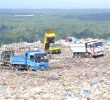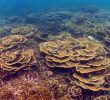DAVAO CITY, Philippines — Davao City produces 570 to 600 metric tons of waste daily, one fourth of these or 150 metric tons are single-use plastics.
This is a reason for the environment group Interfacing Development Interventions for Sustainability (IDIS) to urge the local government to implement the banning of single-use plastics in the city.
IDIS Executive Director Chinkie Peliño-Golle stressed that a city-wide ban of SUPs will have a huge impact to the city’s daily waste generation.
“This will translate to less plastic being produced, consumed and disposed of, less plastic being dumped or burned, and less plastic leaking to the Davao Gulf and into the Pacific Ocean,” Golle said.
“Aside from the benefits of cutting plastic pollution, banning SUPs will also help in re-shaping people’s behavior with increased awareness on the need to cut down on plastic use and the overall disposable culture,” she added.
SUPs, or disposable wastes include “plastic items intended to be used once before they are disposed of or recycled such as bottles, cutlery, cups, sachets, stirrers, straws, and the ubiquitous plastic bags and polystyrene containers or Styrofoam.”
IDIS hopes that the City Council, through the Committee on Environment Chair Councilor Diosdado Mahipus, Jr, would pass an ordinance banning SUPs in the city by the end of the year.
The city has already implemented a plastic and Styrofoam ban in 2012, and has allowed biodegradable plastic bags to be used for market and other purposes.
The recent flood that hit the city on August 28 washed out tons of wastes including plastics, sachets, and plastic bags floating along Davao River.
Another environment group, Ecowaste Coalition, urges Congress to fast track the bill that will ban SUPs in the whole country.
“Such a law is needed to stimulate and strengthen actions by local government units to address the scourge of throw-away plastic. It should set a phase-out target and timeline, promote alternatives, and provide for incentives to encourage consumer and industry shift to eco-friendly products and packaging,” Aileen Lucero, National Coordinator of the EcoWaste Coalition said.
The group cited a 2018 UN Report revealing the environmental problems associated with SUPs, including the clogging of waterways, plastics ingested by marine animals, and toxic emissions from the burning of plastic wastes.
There is evidence that the toxic chemicals added during the manufacture of plastic transfer to animal tissue, eventually entering the human food chain,” the report said. (davaotoday.com)









